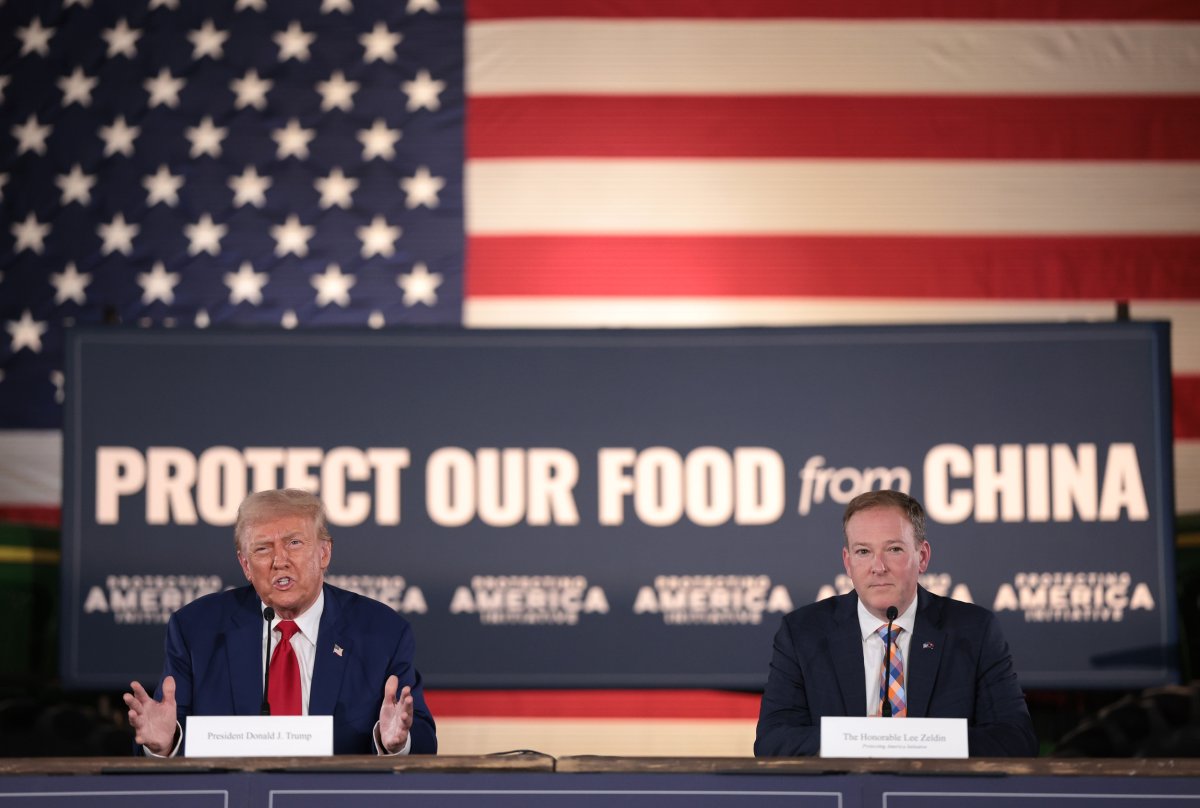Japan, Philippines urge Trump to maintain US security in Asia
Japan and the Philippines are urging President-elect Donald Trump to sustain U.S. engagement in Asia amid rising tensions with China.
Newsweek has contacted the Japanese and Philippine presidential offices for comment via email.
Why It Matters
As Trump prepares to return to office, his “America First” policy proposals have raised concerns about the U.S.’s commitment to the Indo-Pacific region. Leaders in Japan and the Philippines—both bound by defense treaties with the U.S.—have repeatedly highlighted the strategic importance of maintaining alliances in the face of threats via the South China Sea and East China Sea.
There has been a spike in interactions between Chinese and Philippine coast guards and other forces in the busy sea passage, which facilitates one-third of global trade.
Lisa Marie David/Pool Photo via AP
What To Know
On Wednesday, Japanese Foreign Minister Takeshi Iwaya and Philippine Foreign Secretary Enrique Manalo held a joint news conference in the Philippines in which they discussed security concerns in the region.
Iwaya said Japan and the Philippines would approach the Trump administration to “convey that constructive commitment of the United States in this region is important also for the United States itself.”
He added that Japan would oppose “any attempt to unilaterally change the status quo by force” in the East and South China Seas, echoing concerns about Beijing’s maritime activities.
The news conference followed a virtual meeting on Monday in which Japanese Prime Minister Shigeru Ishiba, Philippine President Ferdinand Marcos Jr. and U.S. President Joe Biden vowed to deepen cooperation and reaffirmed their commitment to promoting regional stability.
Biden expressed optimism that Trump would recognize the value of the partnership. “Simply put, our countries have an interest in continuing this partnership and institutionalizing our cooperation across our governments so that it is built to last,” he said.
Marcos said he was confident the three countries would maintain the gains in deepening their diplomatic ties.
The Philippines, which last year ratified a military agreement with Japan to facilitate joint exercises, also conducted trilateral coast guard drills with Japan and the U.S. in 2023.

Win McNamee/Getty Images
What People Are Saying
Japanese Foreign Minister Takeshi Iwaya said in the news conference: “The issue over the South China Sea is a legitimate concern for the international community because it directly links to the regional peace and stability. Japan strongly opposes any attempt to unilaterally change the status quo by force or build up tension in the region. We strongly ask for easing of tensions.”
What Happens Next
With Trump’s inauguration scheduled for January 20, Japan and the Philippines seek to secure assurances from the incoming administration. Iwaya is set to attend the event as a representative of one of the U.S.’s closest treaty allies.
Meanwhile, the Philippines plans to raise concerns with Chinese diplomats at a meeting in Xiamen this week. Discussions are expected to focus on recent confrontations in the South China Sea and long-term mechanisms to reduce simmering tensions.
This article includes reporting from the Associated Press.

